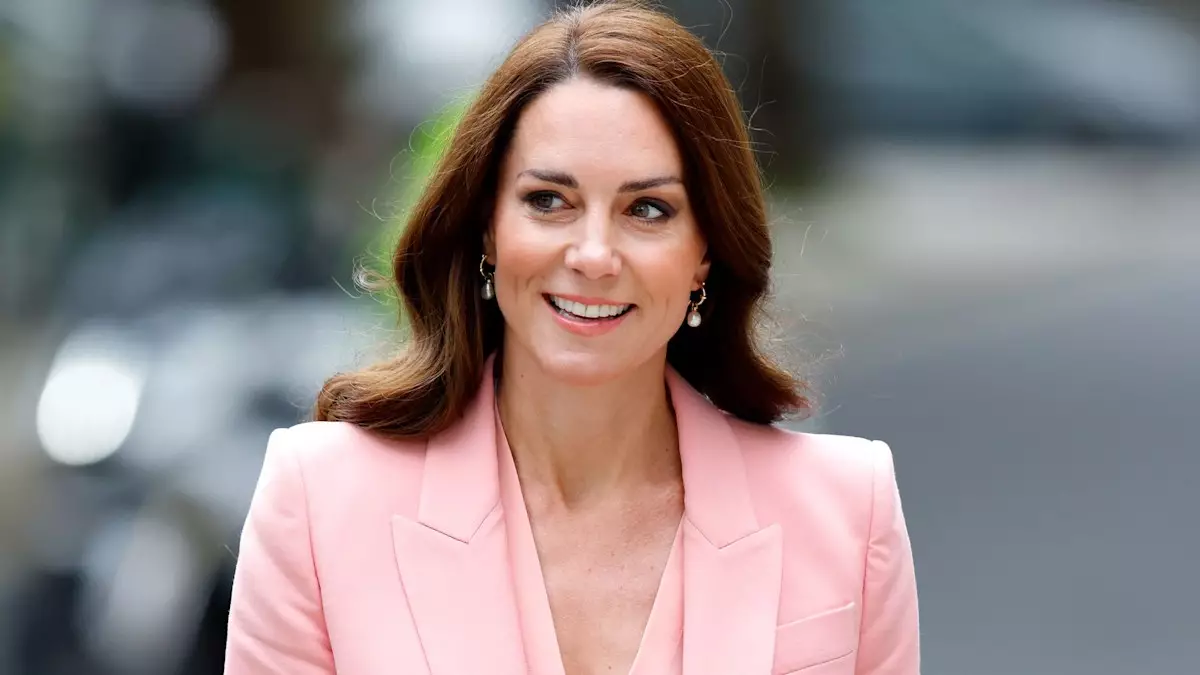The Princess of Wales, Kate Middleton, has emerged as a powerful advocate for early childhood development, a sector often overshadowed in public discourse. Her initiative, the Business Taskforce for Early Childhood, launched in March 2023 through the Royal Foundation, aims to rally corporate support for early years investment, prioritizing a happier and more productive workforce. It is a refreshing departure from traditional royal engagement, demonstrating how modern royalty can interweave empathy with proactive leadership.
As the world grapples with myriad societal challenges, the Princess has recognized that the foundational years of a child’s life are critical. By engaging businesses to consider their role in fostering early development, she is not merely advocating for children but is also drawing a clear link between comprehensive parental support and economic prosperity. A year after its inception, it’s become apparent that her vision is not only ambitious but actionable, as numerous companies have begun to reconsider their parental policies.
Positive Corporate Changes
One notable success story within this initiative has been Deloitte UK, which revamped its parental leave policy to provide 26 weeks of full pay. This is a significant leap from the legally mandated two weeks of paternity leave that the UK currently offers, which is among the least generous in Europe. Such progressive changes reflect a growing awareness among corporations that investing in the well-being of their employees, particularly during critical life events such as parenthood, can enhance engagement, loyalty, and productivity.
Organizations like Deloitte are not alone in acknowledging the potential benefits of improved parental leave policies. Other firms in the Business Taskforce, including IKEA UK and Iceland Foods, are also taking bold steps towards redefining how they support new parents. From launching essential baby products to collaborating with charitable organizations for better community outcomes, these businesses are making strides that not only serve their employees but also strengthen their brand value.
The Voices for Change
The initiatives proposed by the Business Taskforce have been met with enthusiasm from advocacy groups, such as The Dad Shift. Co-founder Alex Lloyd-Hunter underscored the implications of these changes, emphasizing the significance of political frameworks that underpin parental leave. His organization campaigns for reforms that would secure equitable and adequate paternity leave for all fathers and non-birthing parents, regardless of employment status. With Lloyd-Hunter’s assertion that “two weeks isn’t enough,” the narrative shifts from mere acknowledgment of inadequacies to a clarion call for legislative reform.
One cannot ignore the underlying truth in his words; currently, the UK’s paternity policies are a disservice to workers, particularly in smaller businesses where financial constraints limit support. The inconsistency in parental leave experiences across different employment sectors presents a stark dilemma requiring urgent government intervention to align statutory offerings with modern family needs.
A Broader Economic Impact
The Business Taskforce for Early Childhood has also produced a report asserting that government and corporate investment in early childhood could yield an economic benefit upwards of £45.5 billion annually. This staggering figure positions early childhood development not only as a moral imperative but as an economic necessity. The Princess’s drive likely reflects the belief that nurturing future generations provides a sustainable framework for national growth and innovation.
Beyond the direct impact on parents and children, the initiative invites broader discussions surrounding societal values and corporate responsibilities. In an age where corporate social responsibility is increasingly scrutinized, the Princess’s leadership catalyzes a crucial dialogue about how businesses can evolve their roles within communities to address pressing socio-economic issues.
The Royal Legacy of Advocacy
Her involvement in early childhood issues is not new. The establishment of the Centre for Early Childhood in 2021, alongside the launch of the Shaping Us campaign—widely regarded as her encapsulated mission—throws into sharp relief her dedication. By illuminating the developmental window from pregnancy to age five, Kate has positioned herself as a thought leader, deftly linking the well-being of families with the health of society at large.
In endorsing corporate initiatives while also stirring public dialogue, the Princess of Wales is crafting a multifaceted legacy. It reflects a contemporary monarchy that transcends traditional ceremonial roles, embodying a proactive commitment to making a tangible difference in people’s lives. As more businesses respond and the political landscape begins to shift, one can only hope that her efforts lead to a more equitable and supportive framework for parenthood in the UK.

